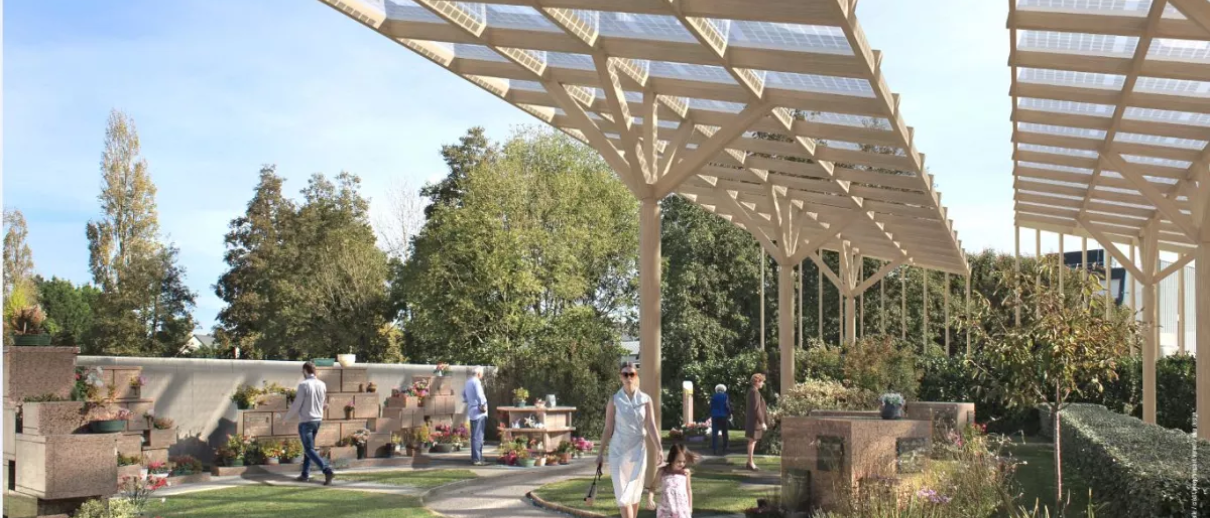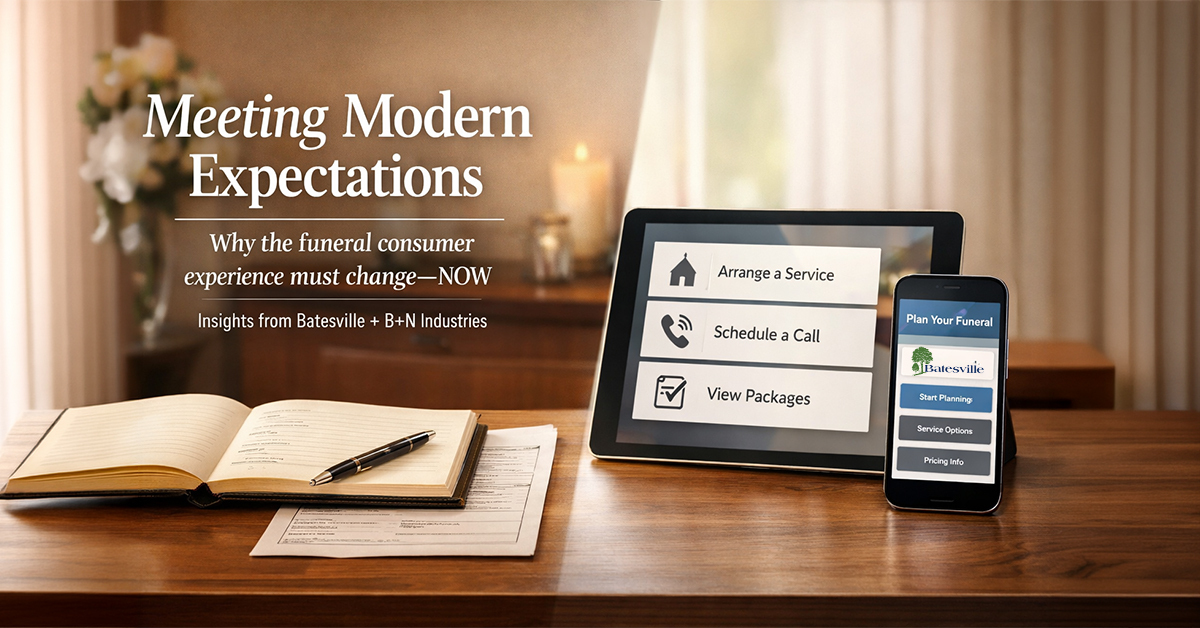Not Ready to Go Completely Green? Here’s How to Be a Little “Eco-Friendlier”
The growing popularity of green burials, alkaline hydrolysis, and natural organic reduction in North America speaks volumes for what consumers are looking for these days: more Earth-friendly, sustainable deathcare options. However, while most deathcare operations would love to offer families a full line of eco-friendly products and services, not every funeral home, crematory, or cemetery can afford to go completely green. Luckily, there are some one-off investments you can make in sustainable practices to your operation and more environmentally-friendly equipment to your lineup without breaking the bank or abandoning beloved traditional options.
Here are some newer ideas we’ve gathered from across the globe that can complement your eco-friendly selection of wood and wicker caskets, shrouds, and biodegradable urns:
Consider solar panels
Recently, discussions about the installation of solar panels in cemeteries and crematoriums have gained a lot of, well, energy. India, which due to its Hindu population boasts an 80% cremation rate, pitched the idea for a solar-powered crematory in 2009, with biofuel as a backup; today, the country’s largest power company is once again exploring plans to pilot a crematorium that can use solar thermal technology to cremate bodies. In Santa Monica, CA, in 2019, an architect presented a futuristic conceptual design for a solar-powered crematory for that city, but the idea never came to fruition.
In the meantime, a small French town is installing a “canopy of solar panels” over its cemetery that, when completed, will distribute energy to local residents, saving them hundreds of dollars a year on their electricity bills.
While both of these projects are quite ambitious, it doesn’t hurt to take a cue from their ideas. Using solar energy to fully- or partially-power your deathcare facility is a low-maintenance, operating-cost-saving alternative that not only reduces your carbon footprint but offers tax incentives (like a 26% federal tax credit and 100% bonus depreciation) and demonstrates your commitment to corporate responsibility.
Explore new monument materials
A Danish “visionary stonemason” is said to be “challenging tradition” with his new line of eco-friendly gravestones. His award-winning designs, which are made from local clay that is fired and hardened “like roof tiles” are an alternative to granite, which is commonly mined and imported from countries like India and China. The fact that these can be made locally rather than imported contributes to lessening CO2 emissions.
Of course, offering stones created from any monument material that can be quarried in North America and crafted by a state-side memorial maker will help to lower your carbon footprint. Even though limestone and sandstone options aren’t nearly as long-lasting as granite, your families might just appreciate immediate eco-friendliness over longevity. Consider consulting with the Monument Builders of North America organization on the best eco-friendly options for your families, and discuss the possibility of allowing these alternatives with your cemetery partners.
Replace gas with electric
It’s no secret that hybrid-powered and electric vehicles (EVs) —including hearses — are much more environmentally-conscious options than gas-guzzling SUVs, but did you know that they’re also becoming more efficient and cost-effective? Recent studies shared by the Natural Resources Defense Council (NRDC) show:
- The average cost to fuel an electric car was $485 a year, but $1,117 for a gas-powered vehicle;
- EV drivers tend to spend about 60% less on fuel costs, and every EV model is cheaper to fill than a gas-powered vehicle;
- EVs cost half as much to maintain over their useful life than gas-powered cars; and
- Current EVs are 2.6 to 4.8 times more efficient at traveling a mile compared to gas models.
The NRDC also found that EV owners tend to charge their vehicles overnight, during non-peak hours, which puts less pressure on a community’s power grid and saves the owner about 30% in EV-powering charges.
But the electric vs. gas argument isn’t only happening in garages and parking lots; there’s also a growing interest in replacing gas-powered retorts with electric models. Electric cremators are being adopted quickly in the UK due to Europe’s climate goals, and one UK manufacturer estimates that by “2030, about 50% of the crematoria will be equipped with an electric cremator. All new installations to be built will then be electric.” The same company estimates that their electric cremator uses 85% less energy than a gas model, boasts 50% lower emissions of NOx (Nitrogen Oxide) and 50% less CO2 emissions, and requires less maintenance.
Of course, alkaline hydrolysis (AH), which has now been legalized in 29 states, is the most widely-adopted energy-saving form of cremation in the U.S. today and one of the two most eco-friendly forms of disposition overall, along with natural organic reduction. AH equipment is powered by electricity, and the entire process is estimated to offer “over 90% energy savings when compared to flame-based cremation” in addition to its minimal impact on fossil fuel usage, greenhouse gas emissions, and contribution to global warming.
Other environmentally-friendly alternatives
Opting for any of these Earth-saving alternatives would definitely set apart your operation from less eco-friendly competitors, and that’s important. Considering that the folks making deathcare arrangements are getting younger, and today’s younger generations are demanding more sustainable options in all aspects of their purchasing, it makes a lot of sense that touting your funeral home’s or cemetery’s solar panels or electric cremation process could be the tipping point for a consumer seeking a greener or simply more-Earth-conscious provider.
There are even smaller steps you can take (and advertise), though, that could bring positive attention to your operation, including a partnership with a natural organic reduction facility, the Green Burial Council and/or a local hybrid, natural, or conservation cemetery or replacing or supplementing your embalming chemicals with eco-friendly alternatives, Although 78% of the country has said that a sustainable lifestyle is important to them, we’d venture to guess that a sustainable death-style is equally valued.




